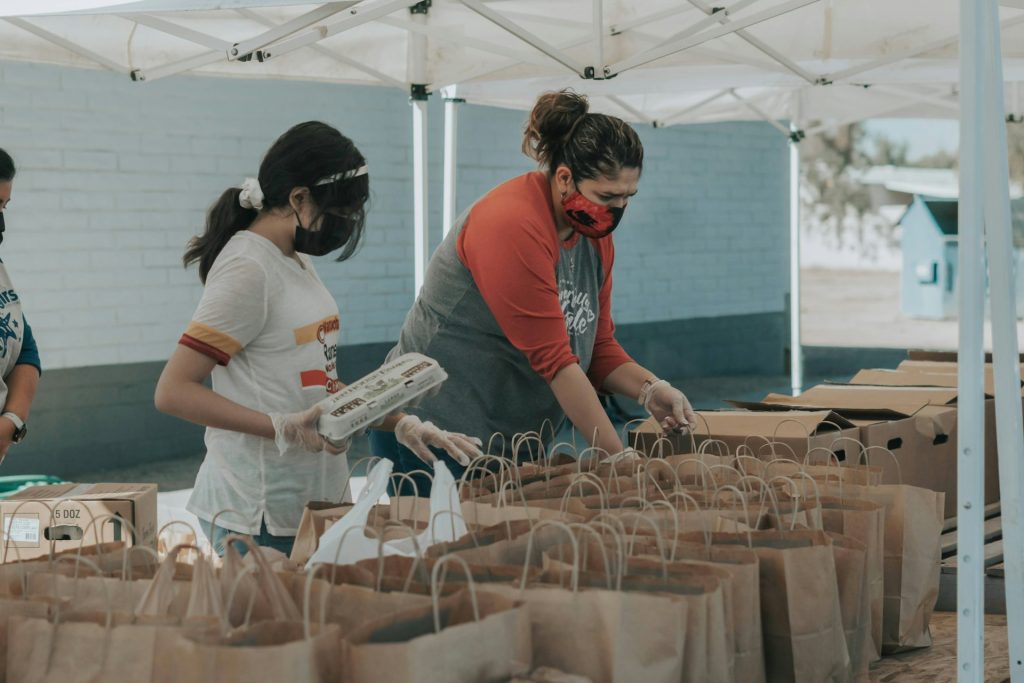When times are tough, it’s easy to let morale slip and feel pessimistic. While uplifting yourself can be difficult, putting on a brave face is critical to show strength to your loved ones. How can you be a good leader and stay positive?
Here are seven strategies for boosting morale in tough times.
1. Train a New Pet

It’s hard to beat the excitement of a new pet. Dogs, cats, rabbits or other domesticated animals could be what your family needs to break up the blues and inject positive energy into the house.
They’re also great for survivalists — especially older adults — who want companionship and security. A 2020 Aging & Mental Health study finds pet ownership increases mental health resilience and reduces loneliness for seniors.
While pets benefit your mental health, they can serve various purposes around your property. For example, dogs are natural hunters, so they can mitigate feral rabbits and other undesirable animals with lessons.
Most canines offer services as solid guard dogs, so training them is worth your time. Cats also have a role in home security by alerting you when an unwanted presence appears and killing pesky rodents.
2. Retrain Survival Skills
Tough times may mean you’re going through a rut. The days feel repetitive and you fall into a mundane routine. This monotony can lead to complacency and compromised craft, but the last thing you need is to be rusty when it’s time to spring into action. Take this time to retrain your survival skills and get back on top.
For instance, your physical fitness may have slipped during these challenging times. Survivalists need a healthy diet and exercise to stay physically and mentally prepared for SHTF situations, so develop a fitness routine you enjoy doing every week.
Other survivalist skills worth refining are firearm shooting, fire-building and first aid. Time is of the essence for all three skills — you’ll need to be quick and accurate in life-or-death situations.
3. Find a New Hobby
You can help yourself in tough times by diverting your energy toward positive activities. Spare time can leave you time for negative thoughts, so fill the void by finding a new hobby or skill you’ve always wanted to master, making that your focus. You may pick up a new craft that creates fun memories and exciting opportunities.
A fun and popular hobby for survivalists is learning guitar. This instrument has been integral to numerous music genres and is an impressive skill. Popular songs you’ve heard on the radio use only two or three chords, so it won’t be long until you’re jamming to classic tunes.
Learning a new instrument is fun and benefits your cognitive function. For instance, a 2020 Human Brain Mapping study shows musical instrument training improves verbal memory in older adults.
4. Start Family Traditions

If your family is struggling, try starting new traditions in the house. Getting everyone involved in a new activity is an excellent way to pass the time, distract from troubles and energize your loved ones. Find something they’d like and carve out time each week for it.
For example, you could make one or two nights a week to watch movies. Introducing new board games brings friendly competition, so teach your kids Monopoly, Scrabble, Clue and other classics.
Outdoor-loving families would enjoy group hikes while exploring the sights and sounds. These adventures also present opportunities to hone your survival skills and familiarize yourself with new terrain.
5. Find Support Groups
Sometimes, asking others for assistance is the best way to help yourself. If you’re in need, there’s a good chance someone else is going through a similar situation or has been in your shoes before.
Find local support groups with people who know what you’ve been through because their advice and insight will be the most fruitful.
6. Volunteer Your Time

Another way to help yourself is to volunteer your time and be a part of something bigger. For instance, take time from your day to help the animal shelter by walking dogs, grooming pets and socializing with the animals.
These facilities often have limited funds and depend on volunteer support. Soup kitchens, food banks and nursing homes are other worthwhile places to spend your time helping those in need.
Volunteering is an excellent strategy to help someone else and improve your morale. Research shows donating your time to worthy endeavors helps your mental and physical health, so find a cause that means the most to you. A 2020 American Journal of Preventive Medicine study finds volunteering 100 hours per year reduces your risk of mortality due to higher physical activity and psychosocial benefits.
7. Avoid Toxic Activities
Getting through the bad times means minimizing harmful activities and staying positive as much as possible. Here are some toxic habits that might not help your journey:
-
Drug and alcohol abuse
-
Setting unrealistic expectations
-
Excessive self-criticism
-
Comparing yourself to those around you
-
Spending too much time alone
-
Compromising your sleep and daily diet

Finding the Right Strategy to Boost Your Morale
Tough times can profoundly impact families trying to keep hope alive, regardless of their situation. The best way to tackle the sadness is to find new motivation and follow your passion. What makes you happy?
Survivalists should use this time wisely and implement one of these seven strategies to boost morale. You’ll share bonds and create lifelong memories with any of these activities.
